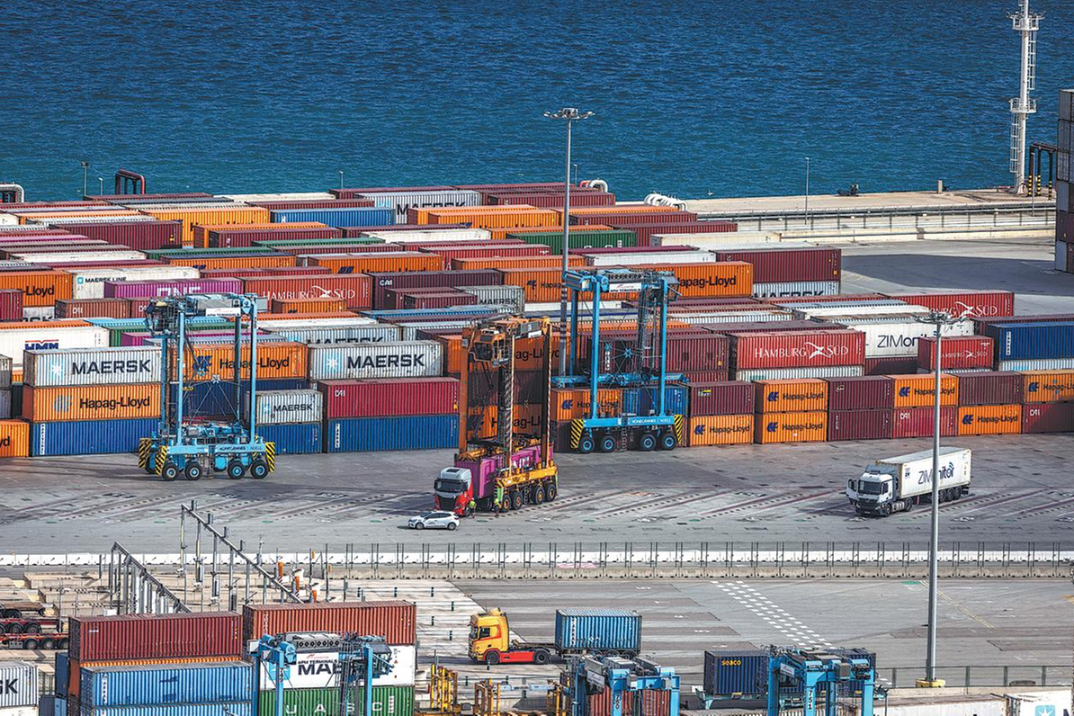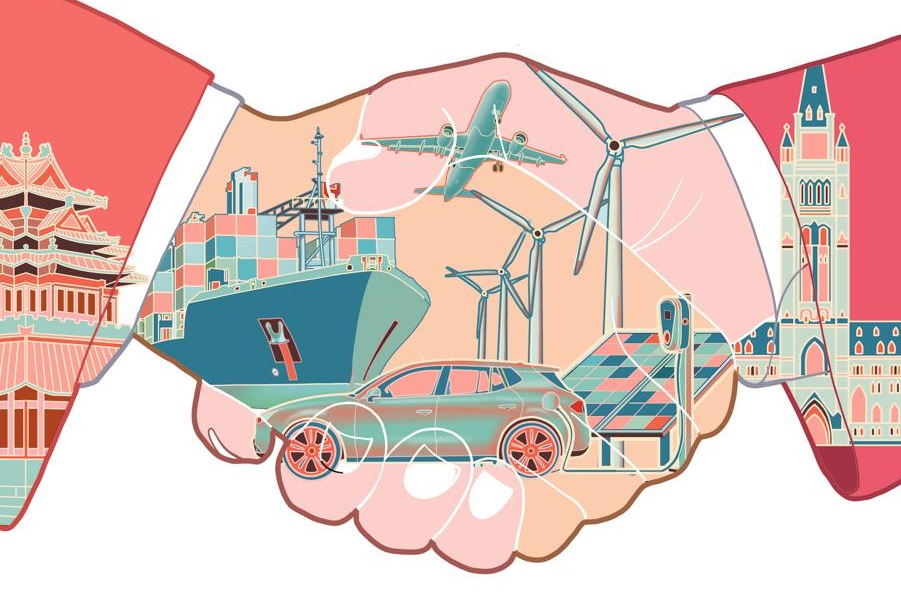In pursuit of establishing a new order


The mission of the United States and its allies to the systematic approach of containing China is now more evident than ever. Implementing a maritime blockade against China in the South China Sea and creating a global NATO are two aspects of this strategy that are seriously concerning. According to the NATO 2030 agenda, these two actions are intended to bring NATO to China's borders and ultimately breach its security fault lines. Fanning the conflict over disputed borders with India as well as aiding terrorists on China's western borders are also part of the strategy.
After the Soviet Union's fall and the ending of the Cold War, this aggressive viewpoint is what gave rise to the current global order; a viewpoint that considers itself to be perfect, thorough, pure, and error-free. It disregards any legislation it finds objectionable and bears no responsibility to any governmental body, treaty, or international agreement. Only a small part of the strategic wrongdoing that the US has engendered in the world order is evident in its actions. The intervention in Kosovo in 1999 or the attack on Iraq under the pretext of finding weapons of mass destruction in 2003 after failing to meet the demands of the Security Council or the persecution of prisoners in Abu Ghraib and Guantanamo prisons are only a small part of the horror created by the United States in the interwar period. The country thinks it occupies the highest position and has the power to interpret every phenomenon in the world whatever it pleases. History shows that US authorities proclaimed openly that "we stand tall and we look further into the future than other countries" following the conclusion of the Cold War. This point of view now calls for a global confrontation against China.
Since the visit of Republican Newt Gingrich in 1997, none of the speakers of the US House of Representatives had gone to Taiwan before Pelosi. What American institutions and think tanks said during Pelosi's visit bring the Opium Wars to mind, demonstrating the conviction that American goals must be attained at any cost.
The US is telling China that if it does not follow the American order or if the US' decline continues, Beijing will also be attacked, drawing on historical precedent. The US strategy is based on preventing China from gaining from the international system and pushing it toward war with Taiwan. In other words, the West seeks to cut off Beijing's corridors and divorce China from the supply chain, which can happen concurrently with a confrontation with Taiwan and the imposition of severe economic and military sanctions. That might result in the division of Hong Kong and China's western areas.
For Beijing's decision-makers, Deng Xiaoping offered some wise counsel: "Observe calmly; secure our position; cope with affairs calmly; hide our capacities and bide our time; be good at maintaining a low profile; and never claim leadership." As a result, understanding the transition and detaching Beijing from the existing order to create a parallel or alternative one are of utmost importance in the current circumstances when the American international order is decaying.
Chinese policymakers now believe that Washington is committed to carrying out Beijing's comprehensive containment strategy. Beijing is facing problems with the Quad (the United States, Japan, India, and Australia), AUKUS (the United States, Britain, and Australia), as well as the potential inclusion of South Korea to the Quad. According to some Chinese scholars, China ought to decouple from the American-led order and stop paying the US a peace dividend in the wake of American containment policy.
Three crucial methods that can support China's position in this decoupling are bolstering its position in the global supply chain, increasing its influence in international commercial sea lanes, and enhancing the Belt and Road Initiative. China has established independent organizations that are very similar to a world government within the framework of its commercial and economic cooperation. These organizations, such as the Belt and Road Initiative, the Asian Infrastructure Investment Bank, and the New Development Bank, have the potential to replace the current degenerating international order with economic infrastructure.
The conversion of the intermediate exchange into gold, or the replacement of the dollar with the yuan, is the other tenet of China's international system.
This initiative might succeed if there is a rising effort to develop and implement a mechanism akin to the SWIFT banking system or something like the gas-yuan idea put up by Chinese strategists in 2017. In China, the notion of switching from the dollar to the yuan has a long history. The People's Bank of China's then-president Dai Xianglong asserted the same thing in 1999: "The international monetary system needs reform" because "the role of international reserve currency played by a few countries' national currencies has been a major source of instability in the international monetary system."
All things considered, it may be best for China to pursue the alternative of forming new blocs, non-Western institutionalization, and ultimately the modification and transformation of the current order from a hierarchy-based order to one based on peace, equality, and mutual cooperation with aligned countries before it reaches the final phase of confrontation with the USA. If AUKUS is implemented, NATO expands into East Asia, and Australia acquires nuclear submarines, a final blockade of China and the imposition of US demands on Beijing are not out of the question, particularly if Russia loses in the conflict in the Ukraine.
As a result, one of the key elements of China's strategy against Western restrictions is to establish a global trading system based on the yuan and work to increase its pricing power, which can both lessen China's vulnerability in world trade and act as a foundation for the formation of new Chinese blocs made up of the BRICS, Central Asia, Venezuela, Iran, and Nigeria.
Thus, oil exporters have the option of exchanging their oil income for credit or gold on the Shanghai and Hong Kong gold exchanges. This capability of mutual conversion demonstrates that China, the greatest importer of oil and holder of the largest global reserves, is entitled to the best terms for indirect oil trade using gold; this might mark the start of new pricing models for a significant global commodity. With the assistance of its allies and partners, Beijing has the ability to establish a new system.


































